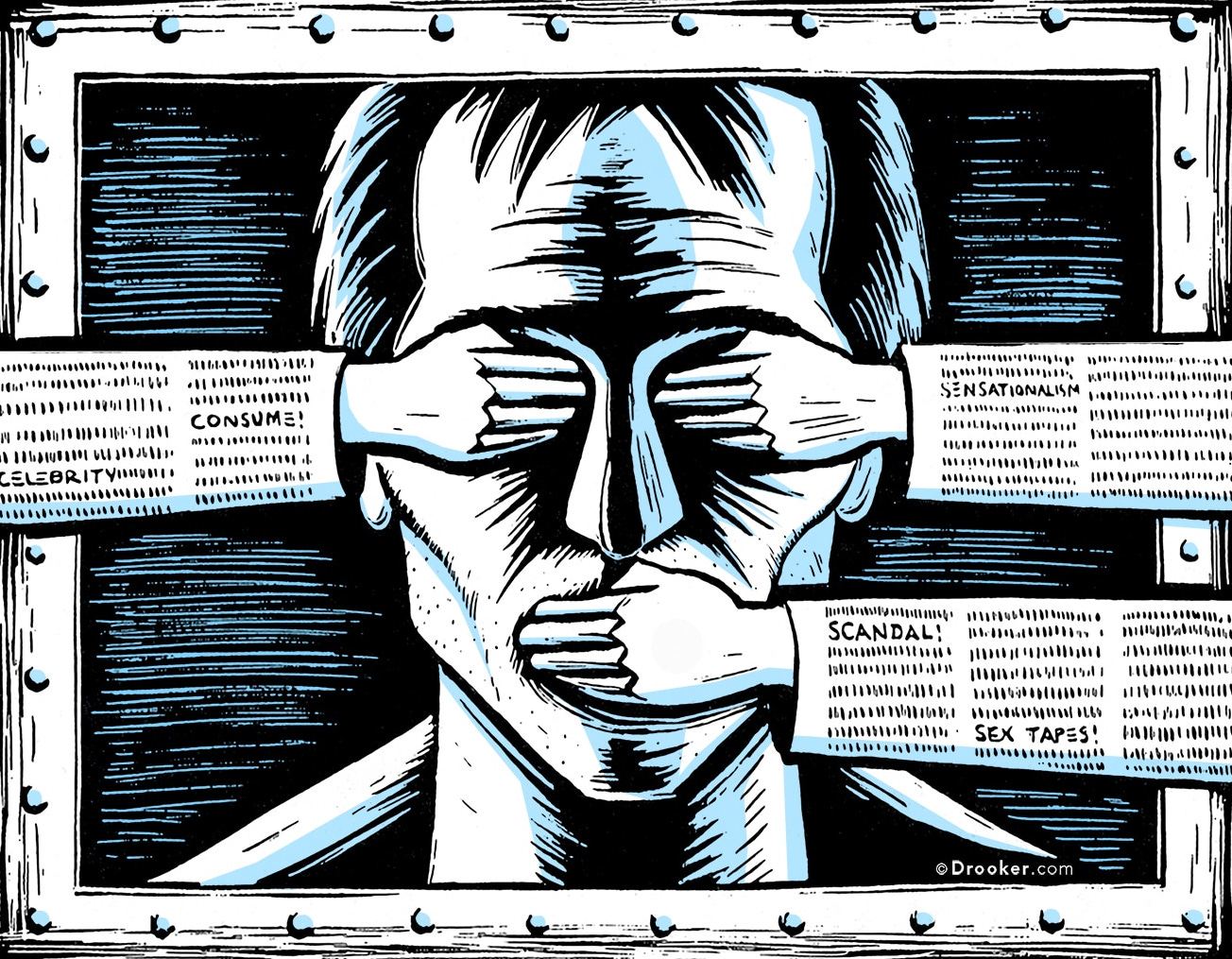Why Big-Tech Censorship will Fail
Dataism and Economies of Information
It feels a bit strange with free speech so mired in controversy this late in our civilization. I feel a strong sense of indignation mixed with a resigned exasperation. But really though, hasn’t the virtue of free speech emerged triumphant time and time again in innumerable episodes of history and literature? What was the point of reading all those books in school? Scheiße!
When I first conceived of writing this post, what I expected would end up being a long, probably passive aggressive apologia for free speech, I expected I’d write about the more crass examples of censorship out there: like those of doctors and politicians and scientists and whole internet platforms (even a Nobel Prize winner!). None of this is swept under the rug weirdly enough – no, it is often extolled and exhorted by America’s intelligentsia. Awesome! Then at some point I remembered Noah Harari’s book Homo Deus (I don’t recommend it, generally; it’s not Sapiens) which struck me as providing not a direct defense of free speech, but something more low level, a simple juxtaposition of antitheses which I think may explain why tech-mediated censorship will ultimately fail – fail in it’s own aspirations, and fail the public. And ironically it has to do with algorithms: two algorithms, specifically.
These algorithms masquerade in economic science as capitalism and communism. While there remain some holdouts here in America and elsewhere – socialists and Marxists, whom I like to call the flat-earthers of economic science – the question of the two competing systems is relatively settled. Capitalism won, lifting billions out of poverty. It was necessary but not sufficient for high civilization. Harari explains from the viewpoint of Dataism, a concept that all biological, social, and political systems (essentially everything) boil down to data and data processing.
Harari writes: “Free-market capitalism and state-controlled communism aren’t competing ideologies, ethical creeds or political institutions. They are, in essence, competing data-processing systems. Capitalism uses distributed processing, where communism relies on centralised processing. Capitalism processes data by directly connecting all producers and consumers to one another and allowing them to exchange information freely and make decisions independently...Free-market capitalism thus distributes the work of analysing data and making decisions between many independent but interconnected processors . . . In order for the system to run smoothly, as much information as possible needs to flow as freely as possible.”
Ideas and information are like commodities, but with a twist: they can have seemingly autonomous lives of their own. Information, even more than trade, wants to be free. Once an idea enters the raging ecosystem that is the internet, it gets not lost, but irrevocably diffused. Pour a bottle of water into any running stream, and one can never recover the original substance. Ideas flow from place to place, changing, evolving, spreading again, finding level ground where one might never expect. Computer algorithms, even coupled with human guides, are blunt and ineffective instruments at culling information from avid eyes.
Both data processing systems have tools to minimize inefficiency, but there are no pretenses or aspirations of utopia in capitalism. It can’t “cancel” poor economic decisions or bad information, nor does it need to. Harari explains: “In a free market, if one processor makes a wrong decision, others will be quick to capitalize on its mistake. However, when a single processor makes almost all the decisions, mistakes can be catastrophic. This extreme situation, in which all data is processed and all decisions are made by a single central processor, is called communism. In a communist economy people allegedly work according to their abilities and receive according to their needs.”
Why worry about analyzing and processing facts and miscellaneous controversies for yourself, when Facebook, perhaps in collaboration with a government agency or non-governmental organization, will distill conflicting perspectives and give you exactly and only what you need to know?
Harari relates one particularly droll misadventure in Soviet Russia when bad ideas were foisted onto society: in the 1920s, “Soviet science ministry forced all Soviet biotech laboratories to adopt the theories of Trofim Lysenko – the infamous head of the Lenin Academy for Agricultural Sciences. Lysenko rejected the dominant genetic theories of his day. He insisted that if an organism acquired some new trait during its lifetime, this quality could pass directly to its descendants. This idea flew in the face of Darwinian orthodoxy, but it dovetailed nicely with communist educational principles. It implied that if you could train wheat plants to withstand cold weather, their progenies will also be cold-resistant. Lysenko accordingly sent billions of counter-revolutionary wheat plants to be re-educated in Siberia – and the Soviet Union was soon forced to import more and more flour from the United States.”
No one expects FAANG to reach the degree of irrationality achieved by the communists of the 20th century, and yet if Facebook and Youtube’s unconscionable ban of supporting the lab leak hypothesis was any benchmark, maybe we should!
The justification for censorship always finds itself more in ethics and appeals to emotion than in its underlying mechanics. From the Dataist viewpoint, it’s all about the data of course! Harari concludes that “capitalism did not defeat communism because capitalism was more ethical, because individual liberties are sacred...Rather, capitalism won the Cold War because distributed data processing works better than centralized data processing, at least in periods of accelerating technological change.”
Thus I will wager that the communistic approach to information sharing, like the communist system of economic decision making, will inevitably fail. Economies of goods and of information perhaps operate by kindred mechanics. But don’t think we can avoid this ever-beguiling experiment in censorship in just the same way that humanity couldn’t avoid at least attempting to actuate socialism and communism. Just like the past, we’ll have to let this ill-fated experiment see itself through to the end. Good luck everyone!

